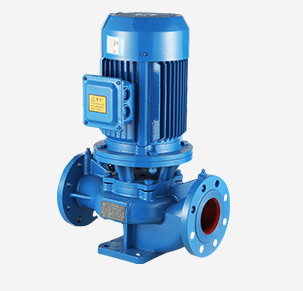Urdu
- Afrikaans
- Albanian
- Amharic
- Arabic
- Armenian
- Azerbaijani
- Basque
- Belarusian
- Bengali
- Bosnian
- Bulgarian
- Catalan
- Cebuano
- Corsican
- Croatian
- Czech
- Danish
- Dutch
- English
- Esperanto
- Estonian
- Finnish
- French
- Frisian
- Galician
- Georgian
- German
- Greek
- Gujarati
- Haitian Creole
- hausa
- hawaiian
- Hebrew
- Hindi
- Miao
- Hungarian
- Icelandic
- igbo
- Indonesian
- irish
- Italian
- Japanese
- Javanese
- Kannada
- kazakh
- Khmer
- Rwandese
- Korean
- Kurdish
- Kyrgyz
- Lao
- Latin
- Latvian
- Lithuanian
- Luxembourgish
- Macedonian
- Malgashi
- Malay
- Malayalam
- Maltese
- Maori
- Marathi
- Mongolian
- Myanmar
- Nepali
- Norwegian
- Norwegian
- Occitan
- Pashto
- Persian
- Polish
- Portuguese
- Punjabi
- Romanian
- Russian
- Samoan
- Scottish Gaelic
- Serbian
- Sesotho
- Shona
- Sindhi
- Sinhala
- Slovak
- Slovenian
- Somali
- Spanish
- Sundanese
- Swahili
- Swedish
- Tagalog
- Tajik
- Tamil
- Tatar
- Telugu
- Thai
- Turkish
- Turkmen
- Ukrainian
- Urdu
- Uighur
- Uzbek
- Vietnamese
- Welsh
- Bantu
- Yiddish
- Yoruba
- Zulu
Telephone: +86 13120555503
Email: frank@cypump.com
اکتوبر . 22, 2024 05:18 Back to list
Efficient Septic Pump Solutions for Residential and Commercial Wastewater Management
Understanding Septic Pumps Essential Components of Wastewater Management
Septic pumps play a vital role in the effective management of wastewater systems, particularly in rural areas where traditional sewer systems are not available. These pumps are essential for moving wastewater from the septic tank to the drain field, ensuring that the system functions efficiently and safely.
What is a Septic Pump?
A septic pump is a submersible device that is installed in the septic tank to transport effluent (the liquid waste) to a designated area for further treatment. This component is crucial for maintaining the flow of wastewater, especially in situations where gravity alone cannot efficiently move the sewage through the drainage system.
Types of Septic Pumps
There are several types of septic pumps, each tailored for specific needs
1. Effluent Pumps These are designed to pump the liquid waste from the septic tank to the drain field. They are typically used when the drain field is situated at a higher elevation than the septic tank.
2. Sewage Pumps Different from effluent pumps, sewage pumps handle solids and larger particles found in wastewater. They are used in systems where solids might clog effluent pumps.
3. Grinder Pumps These pumps are equipped with sharp blades that grind up solids before pumping them out. This process allows for the efficient movement of waste through smaller pipes and is particularly useful in low-lying areas.
Importance of Septic Pumps
Septic pumps are crucial for several reasons
septic pumps

- Prevent Backups A functioning septic pump prevents wastewater from backing up into the home, which can lead to unsanitary conditions and expensive repairs.
- Efficient Wastewater Management By moving waste efficiently, septic pumps contribute to the overall effectiveness of the septic system, ensuring that waste is properly treated and does not contaminate the surrounding environment.
- Protecting Groundwater Properly functioning septic systems, aided by septic pumps, help to protect groundwater by ensuring that effluent is adequately treated before it percolates into the soil.
Maintenance of Septic Pumps
Regular maintenance of septic pumps is key to ensuring their longevity and efficiency. Here are some essential tips
1. Inspection Periodically inspect the pump for any signs of wear or damage. Look for unusual noises, such as grinding or rattling, which could indicate a malfunction.
2. Professional Servicing Engage a professional to conduct routine maintenance checks, including cleaning and testing the pump to ensure it operates at optimal levels.
3. Monitoring Alarm Systems Many modern septic pumps come with alarm systems to alert homeowners of any issues. Ensure that these alarms are functioning correctly and respond promptly to any alerts.
4. Proper Usage Avoid flushing non-biodegradable items or chemicals down the toilet, as they can damage the septic system and overwork the pump.
Conclusion
Septic pumps are an essential component of a healthy wastewater management system. They ensure the safe and efficient disposal of waste, protecting both public health and the environment. By understanding the different types of pumps and maintaining them regularly, homeowners can avoid costly repairs and ensure the long-term functionality of their septic systems. Whether you live in a rural community reliant on septic systems or are simply looking to understand the mechanics of wastewater management, acknowledging the importance of septic pumps is crucial for promoting sustainable living practices.
-
High-Efficiency Submersible Effluent Pump for Sewage & Wastewater Solutions
NewsJul.08,2025
-
High Quality CH Warman Slurry Pump Factory - Leading Horizontal Slurry Pump Supplier
NewsJul.08,2025
-
Hot Sale Chemical Circulating Pump – Efficient & Durable Slurry Circulating Pump Solutions
NewsJul.08,2025
-
High-Efficiency Submersible Dredge Pump for Sand & Gravel Durable Dredge Slurry Pumps Solutions
NewsJul.07,2025
-
Wholesale Slurry Pump Impeller Supplier – High-Quality & Efficient Pump Parts for Enhanced Performance
NewsJul.07,2025
-
High-Efficiency Water Submersible Pumps Reliable Water Pump for Potable Water Supply
NewsJul.06,2025










